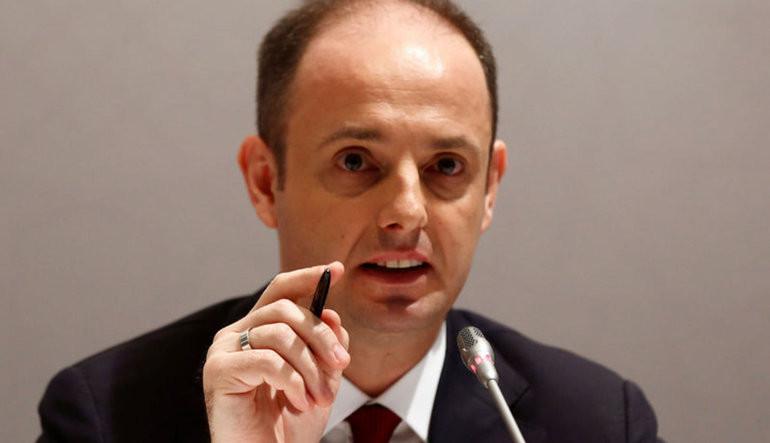Turkey’s Central Bank aims to rein in inflation in 2018: Governor Çetinkaya
ANKARA/ DAVOS

The Central Bank’s main goal this year is to increase the effectiveness of its monetary policy and rein in double-digit inflation, Governor Murat Çetinkaya told Reuters in an interview on Jan. 25.
Çetinkaya, speaking by telephone from the World Economic Forum in the Swiss resort of Davos, also vowed that the Bank would take all necessary monetary policy steps to bring inflation down to single digits as swiftly as possible.
Turkey’s annual inflation stood at 11.92 percent at the end of 2017, far above the Bank’s official target of 5 percent. At its most recent policy-setting meeting, the Bank this month left its top rate steady at 12.75 percent, in line with expectations.
“Our fundamental goal is to increase the effectiveness of monetary policy and accelerate the disinflation process,” Çetinkaya said when asked about his priorities for 2018.
“I want to emphasize again that we will maintain a tight monetary policy decisively until the inflation outlook displays a significant improvement, independent of base effects and temporary factors, and becomes consistent with the targets,” he added.
“Our goal is to lower inflation to single digits in the shortest time and then to bring it towards targets. To achieve this, all the necessary monetary policy steps will be taken decisively,” he said.
But investors have been skeptical about the Bank’s ability to bring down inflation, given that it faces the challenging task of balancing volatile prices with demands from Turkey’s political authorities for cheaper credit.
President Recep Tayyip Erdoğan, who has described himself as an “enemy” of interest rates, has repeatedly called for lower rates to fuel bank lending and boost the economy.
Çetinkaya said the government’s fiscal policy was supportive of the Bank’s efforts to fight inflation.
“Reflecting the coordination of monetary-fiscal policy, we see an increase in the support which public finance is giving in the fight against inflation. There are joint efforts towards making this coordination permanent and systematic,” he said.
Meanwhile, on the sidelines of the WEF meetings, Deputy Prime Minister Mehmet Şimşek said he recognized that Turkey has an inflation problem and vowed that the government is taking the issue seriously.
“The inflation rate rose higher than expectations last year due to the parity shock. Amid domestic and foreign shocks, the Turkish Lira lost value. The good news is that Turkey is now leaving such shocks behind,” he said.
“Additionally, there is inflationary pressure or fragility, which comes from high food prices. We have taken measures to curb these prices and will take new ones,” Şimşek added.
“There are also prices that have naturally risen up after tax hikes… Over this year we will take various fiscal measures that will not hike prices and that will even push them down,” he said.
“The inflation rate will decrease to single digits again in a cooperative manner,” Şimşek predicted.
















